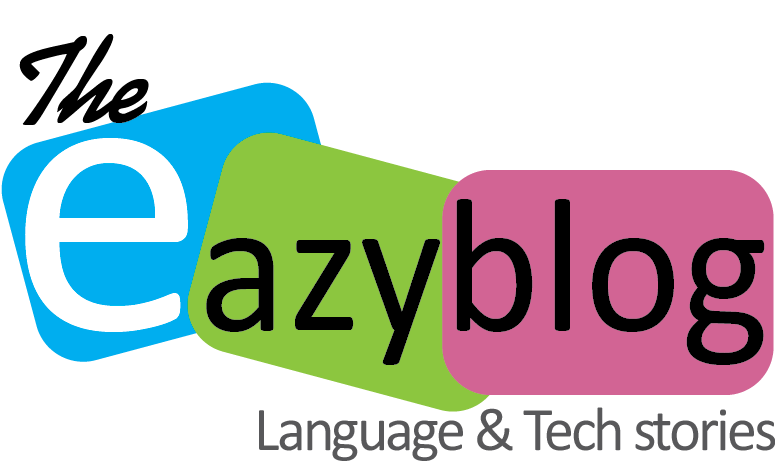The inspiration to write this article was given by a client of mine. He called me one morning telling me that he was interested in translating his CV, and he wanted to know how much it’d cost him and when it would be ready, of course. Clients are always very much preoccupied with the cost – and believe me, I don’t blame them. The thing is that a translator cannot estimate a cost until he/she casts an eye on the actual text which needs to be translated. Of course, on the phone one may try to give a rough estimate, but you should be aware that the translation cost depends on many factors: the size of the text, its technicality, and its delivery deadline; to name just the most important ones.
So, he e-mailed me his CV and what I saw was a document missing formatting, without chronological order, hastily crafted with many mistakes that did not worth to spend money on translating as it was, but it offered ample room for improvement to make it stronger, both in Greek and in English. So, I discussed this frankly with my client, aiming at making my life much easier while translating the final text and also acting proactively regarding the client’s needs. I proposed a general make-over of his CV, taking into account to whom it was addressed to and the purpose it would fulfill by emphasizing his most important career highlights and academic accomplishments, and last but not least, correcting all linguistic mistakes.
I believe that it is worth asking for a professional opinion/advice on your CV before you pay for it to be translated. Some translators may offer you this service as well. Your CV makes the first impression to your potential boss, partner or even university committee if you pursue to being admitted to a post-graduate course. You cannot have just one all-purpose CV and it goes without saying that CVs cannot stay forever the same. They need a regular update, always focused on which professional goals you seek to succeed in at this specific period of your life.
So, some general advice on how to start writing your CV would be:
- Decide on the content: What you will include in your CV and what you will leave out regarding your summary of qualifications, achievements, education and other important keywords is a key element for a powerful CV. Before writing, start making a plan of what you would like to see in it. Try to think from your potential boss’s perspective; if you were in his shoes what would you like to see in a CV applying for this specific post? Relevance and coherence are also important; for instance don’t include your summer bartender career if you are applying for an accountant’s vacancy post. They just don’t match. You get my point, right?
- Which format suits you best? There are three formats you can choose from: chronological, functional, or a combination of the previous two. A chronological format is the most traditional one, and it focuses on work experience listing from most recent job to past with related accomplishments chronologically listed with dates and other details. You can go for the functional format if you have more skills than work history and want to focus more on skills than experience (you are a recent graduate, in a career transition or you return to work after a hiatus). If you are a job seeker with a multi-track work history, you can also decide to choose a mix of those two by combining work experience and skills. You can list jobs in chronological order while mainly focusing on the skills used in the position.
- Its appearance can make the difference: Do you know recruiting and hiring managers spend (on average) just six seconds glancing at a CV? So you can catch their eye with a prefabricated neatly-designed sample template, but beware! Don’t use it as it is! Template samples can improve your CV’s appearance but you should always put your personal touch on them.
- Catch the recruiter’s eye with your header, title, and profile: Almost everybody puts their contact details on the top of their CVs (sometimes they also overdo it by putting in too much contact details — which is not really needed) but an important information they forget to mention is their professional title! How do you define yourself professionally? Are you a teacher, an attorney at law, a psychologist or a trainer? Don’t forget to mention that upfront. Also, write an interesting profile statement to sell your brand, meaning yourself and your skills. Everyone can have a personal brand, the thing is to know how to sell it. A strong title and a unique, passionate and brief profile statement show consciousness of knowing who you are and where you are heading to.
I could write more on this subject, but I promise to come back to this with more business specific details another time. Regarding translators’ CV, which I am also —apart from sending my own— receiving lots of them, I have only one thing to say: a translator’s CV has some peculiarities because of the information you want to expose first. Do not forget to mention your language combinations on the very top and also your specialisations. Another thing when you send your CVs by e-mail is to include a cover letter, and not just send an empty e-mail with an attachment. It’s not polite and it does not make a good first impression!
Finally, don’t forget that a CV may not earn you the job immediately, but wishfully it will hand you the ticket for an interview! And that already puts you halfway through!
Links:
You can find a template from here.
Guide by University of Kent
How to write a translator’s CV by Marta Stelmaszak
Committed to providing excellent language services | Co-owner at Eazytech | MSc. in Political Science, BSc. in Translation EL, EN, FR, IT


